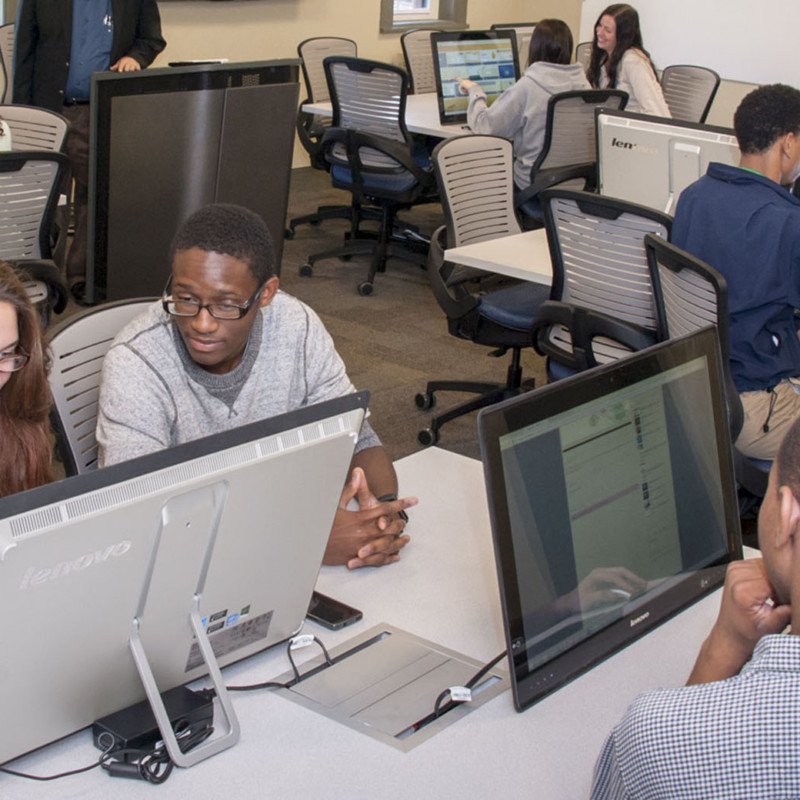
Build Expertise that Spans Boundaries
Professionals with a master’s in Forensic Mental Health may work with individuals or at the policy level to support effective and collaborative criminal justice, mental health, addiction treatment and social service systems.
Tuition & Fees
39-45 credits
$685 per-credit
$3,055 Graduate Assistantships available per semester
(enrolled in a minimum of 6 credits per semester) *Must be available for in-person Graduate Assistantship work on our Albany or Troy campuses.
Length & Format
2 years+
(Depending on track)
Hybrid
program
About The School of Arts and Sciences
Russell Sage College’s School of Arts and Sciences offers interdisciplinary study rooted in critical thinking, creativity, and real-world experience. Graduate programs complement those in Education, Health Sciences, and Management — rounding out Sage’s offerings with a strong cross-disciplinary foundation.
Three Program Tracks
Whichever track you choose, you’ll be prepared to provide expertise that is trauma-informed, culturally competent, and grounded in evidence-based best practices in your work across the criminal justice, mental health, substance abuse and social service systems.
While you will complete some clinical coursework, this is a non-clinical degree program. Graduates who remain in New York will not be eligible to sit for state licensure. Students intending to relocate should review the licensure requirements where they intend to practice.
Course Requirements
M.S. in Forensic Mental Health
The master’s curriculum provides a substantive education in legal and social systems, mental health diagnoses, developmental disabilities, victimology, therapeutic jurisprudence, clinical assessment of court-involved youth and adult offenders, and substance abuse vulnerabilities and interventions.
Certificate in Forensic Mental Health
Classes in the certificate program includes Introduction to Forensic Mental Health; Abnormal Psychology; Evaluation and Treatment of Adult Offenders; Evaluation and Treatment of Court Involved Youth; Family and Juvenile Law; and electives.
Our forensic mental health master’s comes with a deep, Russell Sage-level of support from an assigned faculty advisor who works with you to ensure your success.

Careers with a Master’s in Forensic Mental Health
Alumni of Sage’s Forensic Mental Health graduate programs have been accepted to the New York State Excelsior Service Fellowship program and hired as a homicide detective at the New Orleans Police Department; director of community services at Community, Work & Independence, Inc. in Glens Falls, New York; investigator at the Polk County (Florida) Department of Children and Families; and probation officer in Schenectady County (New York).
Graduates have also completed law degrees at Albany Law School and the University of Massachusetts School of Law and doctorates in clinical psychology at Walden University and William James College.
M.S. in Forensic Mental Health Students and Alumni
Kiara Maher is a Troy native and always knew of Russell Sage College as a “tight community.” But what really …
For any student considering coming to Sage, Ryan Jennings has a simple message: “If you don’t really know what you …
Amanda Henderson had personal reasons for wanting to get into the field of forensic mental health. She had a close …
Kimberly Brayton, Ph.D., J.D. “Forensic mental health is a field of study where we work with students to develop their skill set at the intersection of law, criminal justice and behavioral health.”





